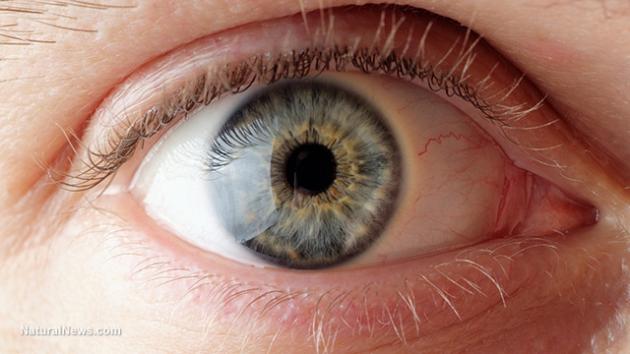Detecting Alzheimer’s BEFORE Symptoms Show
When I was younger, I thought that you only went to the eye doctor if you needed glasses or had something wrong with your eyes.
Yes, I knew about glaucoma, but then figured that was just another eye issue.
In fact, my first eye exam when I was in 7th grade when my mom wanted to know why my grades were dropping. I told her I couldn’t read because everything was blurry and I got headaches. She was adamant that I was just slacking off and took me to the eye doctor to prove that I lied to her. When her eye doctor, Dr. Lee, examined my eyes, he turned to my mom and told her that I should have had glasses years earlier. On the way home, I pulled the old ‘I told you so’ and got smacked for it.
Every couple of years, I would make my visit to Dr. Lee and if necessary, would get a new pair of glasses.
More recently, I have learned that eye exams can reveal other health problems as well.
About 18 years ago, the vision in one of my eyes suddenly went blurry. My first thought was that the artificial lens in my eye (from cataract surgery) had somehow slipped. My wife drove me to the emergency room because it was a Friday evening. It turned out that I had a retina detachment that required emergency surgery to repair. The first question the eye doctor who did the surgery, asked me was if I was a diabetic and at the time, I told him no.
About 5 years later, my regular doctor informed me that I had the early stage of type 2 diabetes.
I know see a good eye doctor on a regular basis and have learned that she can monitor my diabetes by looking into the back of my eye. She has told me that there are a number of health conditions that can be detected with right kind of eye exam and that her job isn’t just getting people the right prescription for their glasses or contacts, but she also looks other health problems.
It sounds like it may soon be possible to use an eye exam to detect Alzheimer’s before any symptoms have been shown.
“A study completed at Duke Eye Center and published March 11 in the journal Ophthalmology Retina suggests the loss of blood vessels in the retina could signal Alzheimer’s disease.”
“‘We’re measuring blood vessels that can’t be seen during a regular eye exam and we’re doing that with relatively new noninvasive technology that takes high-resolution images of very small blood vessels within the retina in just a few minutes,’ Duke ophthalmologist and retinal surgeon Dr. Sharon Fekrat said. ‘It’s possible that these changes in blood vessel density in the retina could mirror what’s going on in the tiny blood vessels in the brain, perhaps before we are able to detect any changes in cognition’.”
“Fekrat said the findings suggest microscopic blood vessels in the back of the eye appear less dense in patients with Alzheimer’s disease.”
“With more research, it is possible your eye doctor could diagnose the disease earlier than is currently possible.”
Fekrat said that they now plan to use the eye exam to monitor the early stages of Alzheimer’s and hopes that it could soon be in use by others to help detect Alzheimer’s at the earliest stages in people to allow them to get early treatment to help stave off the progression of the horrible disease. This could help add productive years to millions of people.









Recent Comments